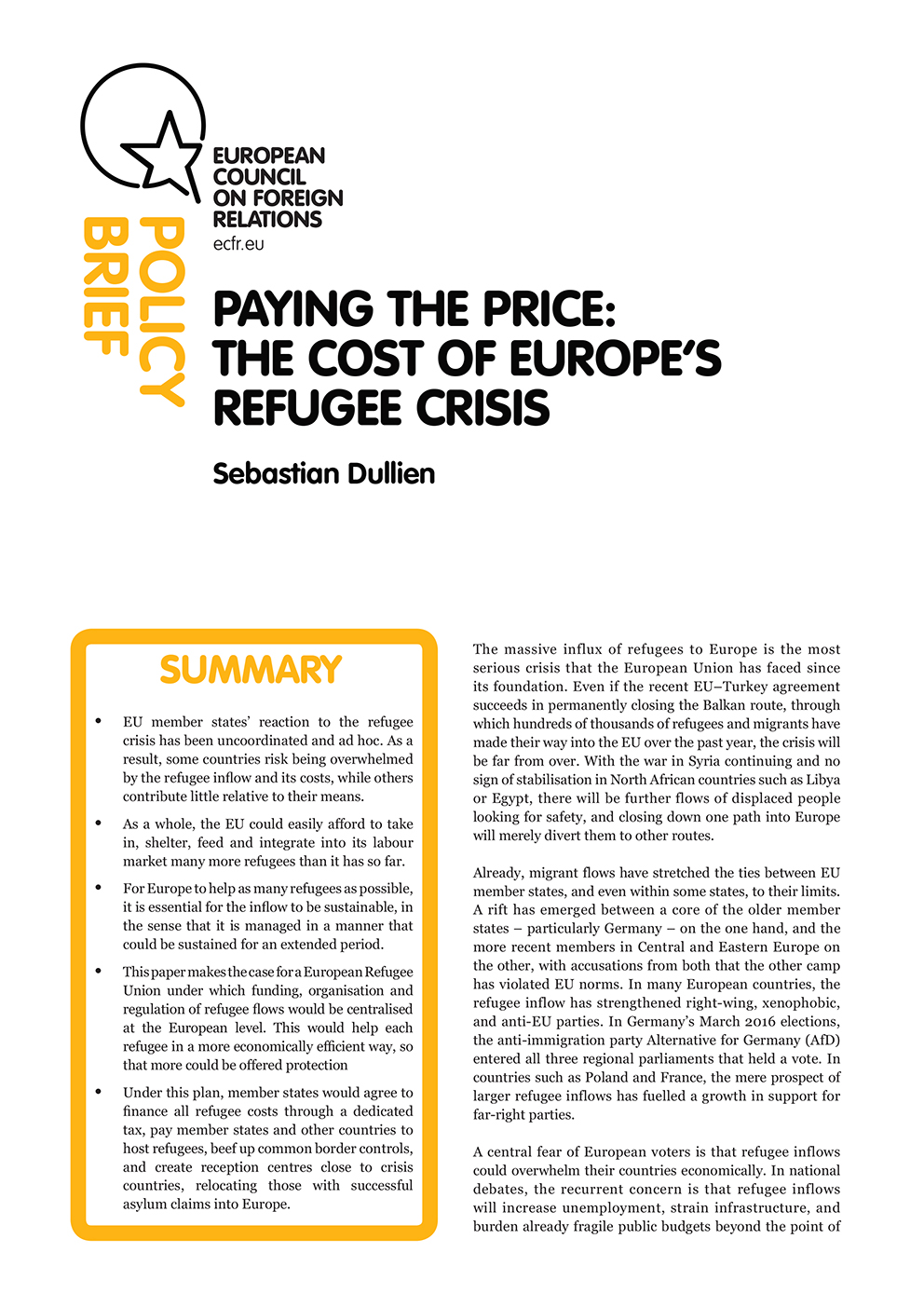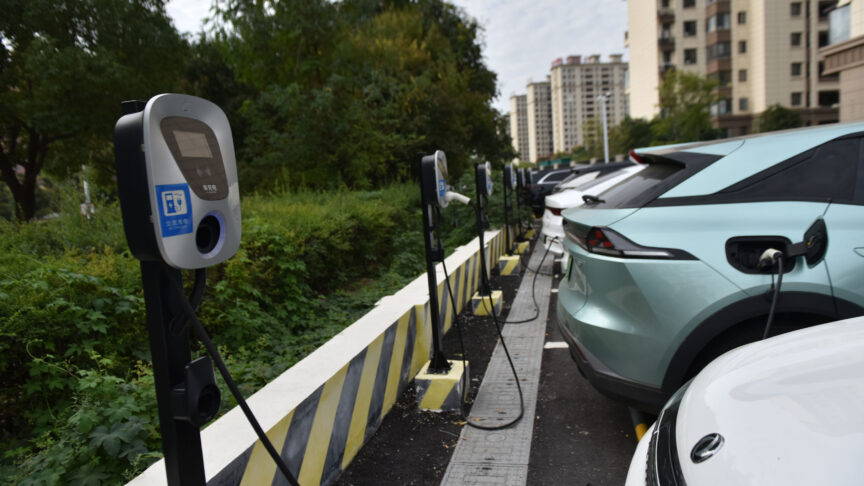Paying the price: The cost of Europe’s refugee crisis
Europe can more sustainably and cost-efficiently handle refugee arrivals by centralising management at a European level
“Paying the price: The cost of Europe's refugee crisis” by Sebastian Dullien explores the economics behind the refugee crisis and makes the case for a more formal European Refugee Union to coordinate the EU’s response, including the burden-sharing by task as proposed by Dennison and Janning above.
Dullien calls for the separation of the financial costs of paying for the refugee crisis from the reception and hosting of refugees, drawing on the fact that some member states would be able to contribute fiscally but are reluctant to host refugees, and vice versa. He also notes that, should the costs of hosting refugees be shared more evenly across the European Union, the local economic and infrastructural benefits of providing facilities for refugees could prove a boon to the struggling economies of some southern European countries.
Such a refugee union would allow for the centralisation of asylum processing, giving greater flexibility to distribute refugees to fit the political and economic circumstances. Greater coordination would also benefit the foreign policy dimension of the refugee crisis: providing more influence within international diplomacy, supporting the provision of refugee hosting in the region, and allowing for a co-operative approach to external border management.
The European Council on Foreign Relations does not take collective positions. ECFR publications only represent the views of their individual authors.



